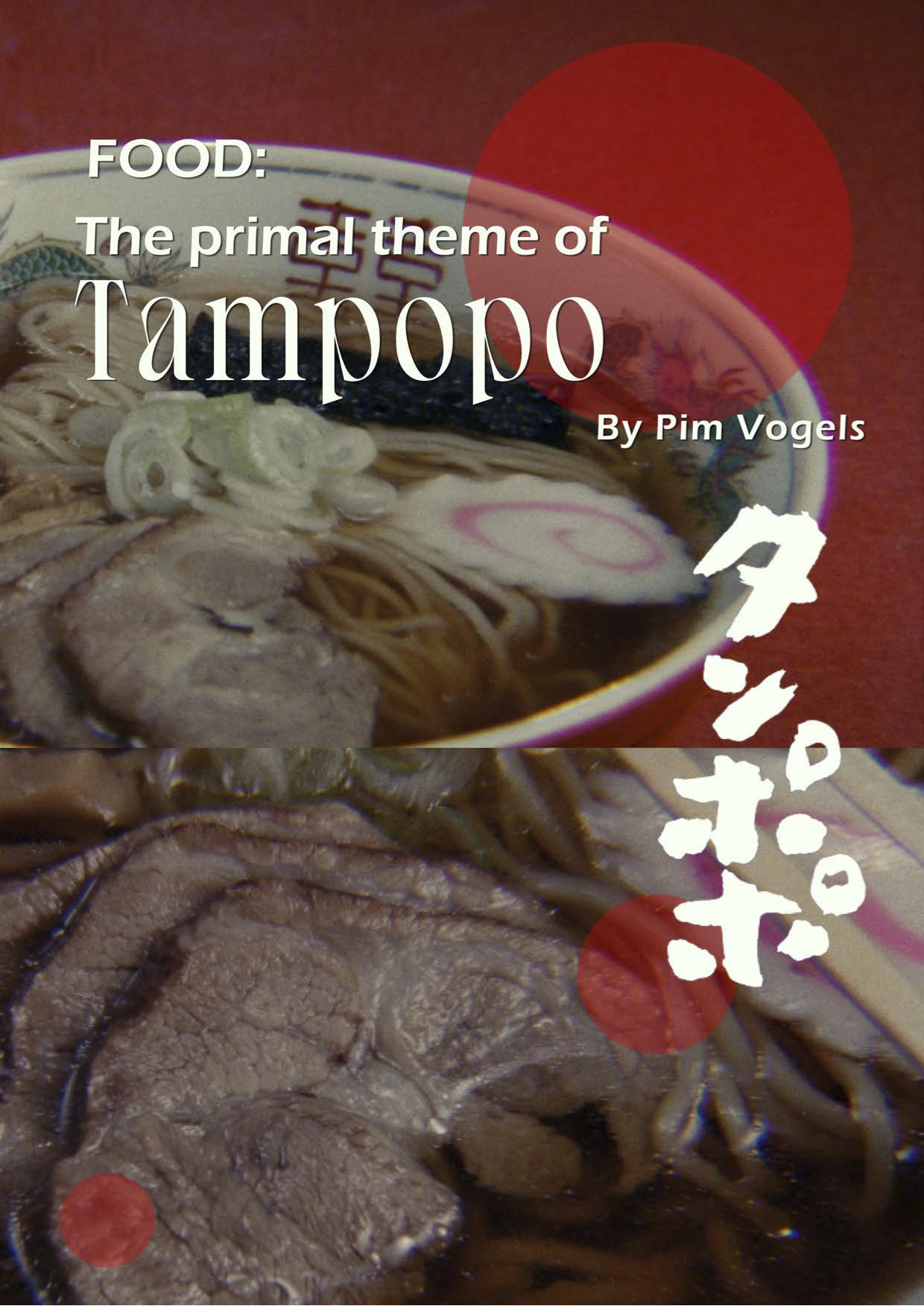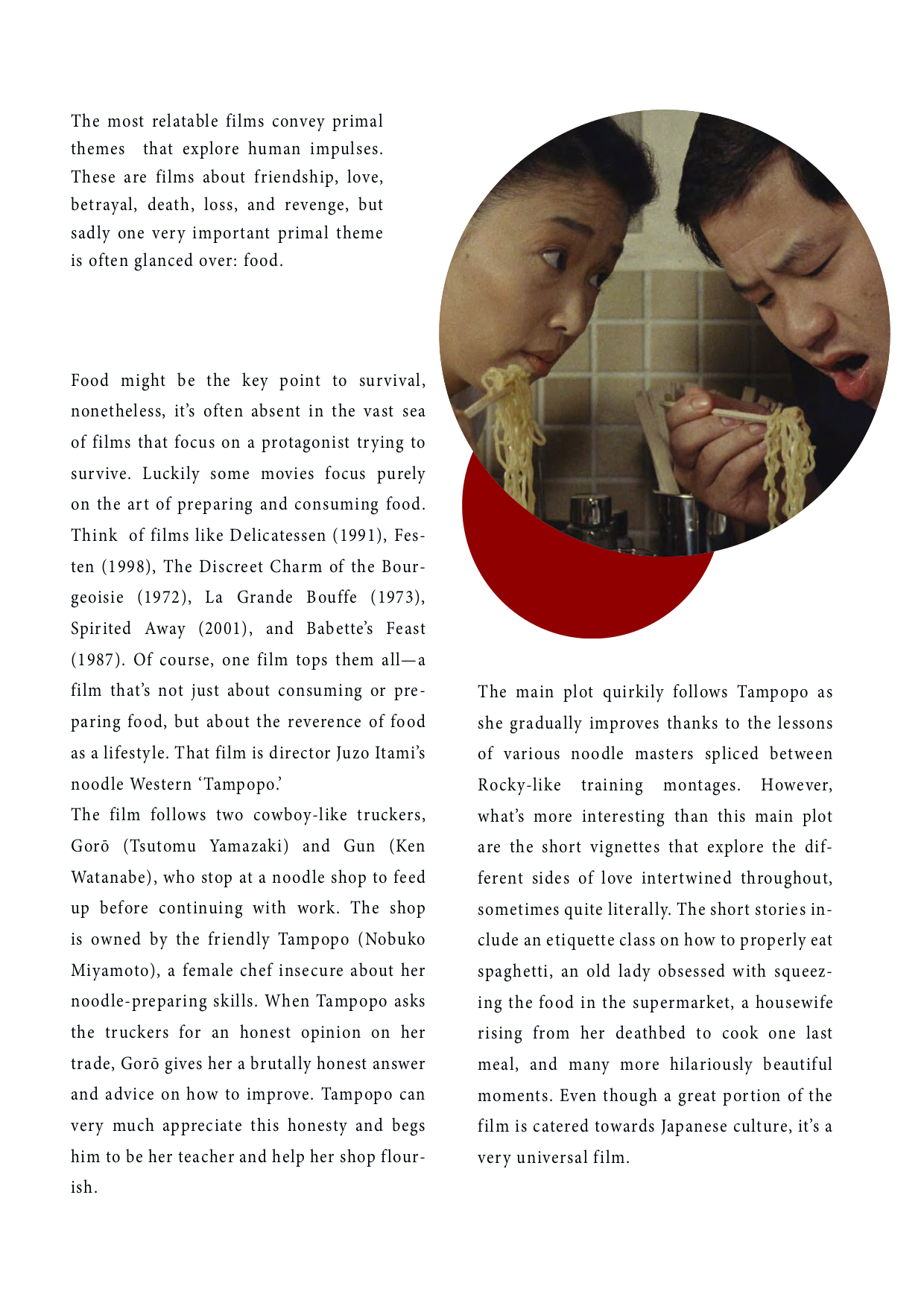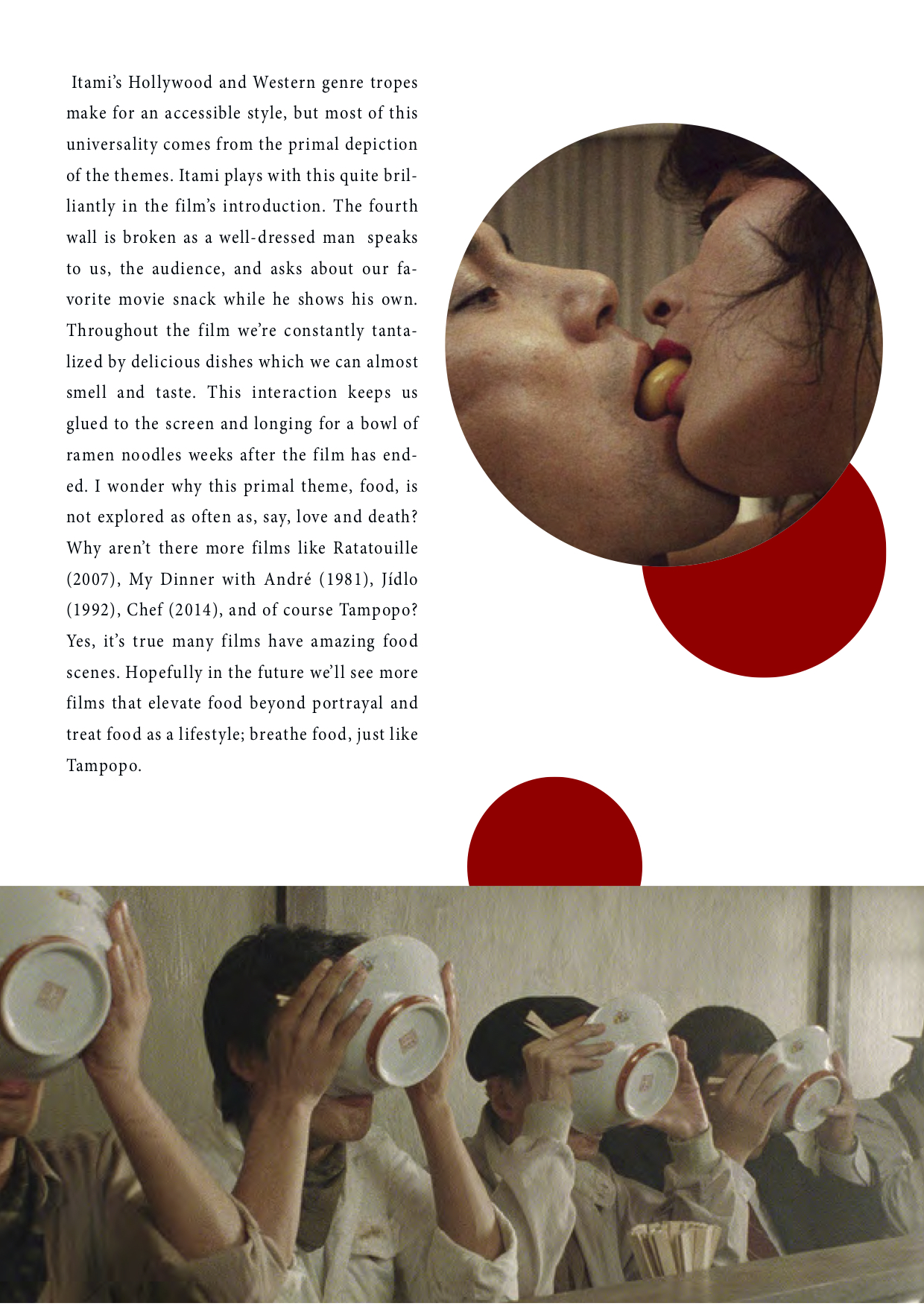Wat hebben eten, tijd, dood, religie en lust met elkaar gemeen?
Om maar gelijk de vraag te beantwoorden: Het zijn stuk voor stuk thema’s met primitieve kenmerken; mijn favoriete thema’s in film.
Wat wordt bedoeld met primitief? Heel simpel, het zijn thema’s die universeel begrepen worden, welke taal je ook spreekt. (Primitieve thema’s of op zijn Engels ‘Primal Themes’ zijn perfect omschreven door de inmiddels overleden schrijver Blake Snyder in zijn boek/ website ‘Save the cat’) Liefde is waarschijnlijk het bekendste voorbeeld van primitieve thema’s; iedereen weet hoe het voelt en iedereen heeft er een mening over. Met liefde komt lust, eenzaamheid, vriendschap, verraad, wraak en rouw. Veel van deze thema’s komen ook met de dood. Met de dood komt ook nog het concept van tijd en natuurlijk moord. Verder, iets minder primitief is religie/ geloof, een concept dat nog steeds door het grotendeel van de mensheid begrepen wordt. En dan hebben we nog eten. Eten? Ja, eten.
Eten is een concept dat ook door iedereen begrepen wordt; zonder eten ga je dood. Maar wat heeft dit met film te maken? Nou, eten is meer dan alleen een eerste levensbehoefte. Het is iets waar je van kan genieten, iets waar je je status mee kan tonen, iets waar je passie in kwijt kan. Het is een concept dat terug te zien is in elke film, maar slechts enkele films gaan een en al over eten. Mijn liefde voor eten leg ik beter uit in een review van een van mijn favoriete films. In het Engels weliswaar, maar het lezen waard, al zeg ik het zelf.
![]()
![]()
![]()
Wat wordt bedoeld met primitief? Heel simpel, het zijn thema’s die universeel begrepen worden, welke taal je ook spreekt. (Primitieve thema’s of op zijn Engels ‘Primal Themes’ zijn perfect omschreven door de inmiddels overleden schrijver Blake Snyder in zijn boek/ website ‘Save the cat’) Liefde is waarschijnlijk het bekendste voorbeeld van primitieve thema’s; iedereen weet hoe het voelt en iedereen heeft er een mening over. Met liefde komt lust, eenzaamheid, vriendschap, verraad, wraak en rouw. Veel van deze thema’s komen ook met de dood. Met de dood komt ook nog het concept van tijd en natuurlijk moord. Verder, iets minder primitief is religie/ geloof, een concept dat nog steeds door het grotendeel van de mensheid begrepen wordt. En dan hebben we nog eten. Eten? Ja, eten.
Eten is een concept dat ook door iedereen begrepen wordt; zonder eten ga je dood. Maar wat heeft dit met film te maken? Nou, eten is meer dan alleen een eerste levensbehoefte. Het is iets waar je van kan genieten, iets waar je je status mee kan tonen, iets waar je passie in kwijt kan. Het is een concept dat terug te zien is in elke film, maar slechts enkele films gaan een en al over eten. Mijn liefde voor eten leg ik beter uit in een review van een van mijn favoriete films. In het Engels weliswaar, maar het lezen waard, al zeg ik het zelf.


